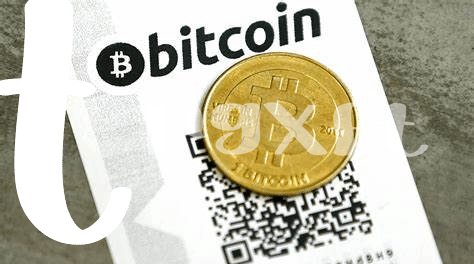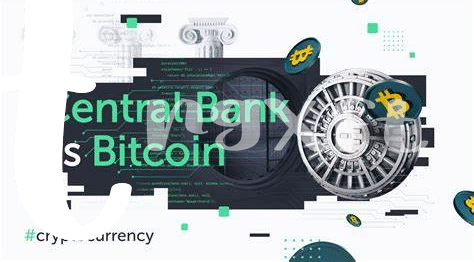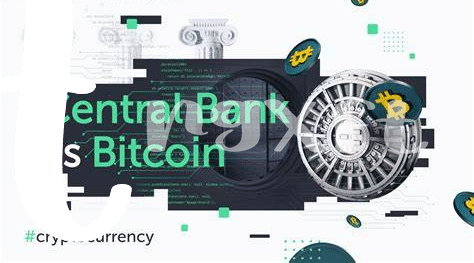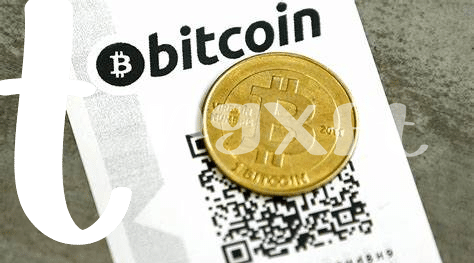Why Banks Might Choose Ethereum over Bitcoin 🏦

Imagine a world where banks look for the best tools to handle money in the digital age. Think of Ethereum and Bitcoin as two superheroes in this world. While Bitcoin might seem like the first hero on the scene, Ethereum is catching the eyes of banks for some pretty cool reasons. One big reason is what Ethereum can do. It’s like a Swiss Army knife compared to Bitcoin’s single-blade. Ethereum allows banks to create and use their own smart contracts. These are like automatic agreements that don’t need a middleman to say, “Yep, that’s okay.”
| Feature | Ethereum | Bitcoin |
|---|---|---|
| Primary Use | Smart Contracts & DApps | Peer-to-Peer Currency |
| Flexibility | High (Can Program Anything) | Low (Limited to Transactions) |
| Appeal to Banks | Ability to Customize | Store of Value |
This difference is a game-changer because it means banks can create their own digital contracts that automatically take care of complicated things without error. These contracts make sure everything’s fair and square, without waiting for someone to check the paperwork. This is why, when banks peep into the future, many of them see Ethereum as their go-to choice. It’s not just about storing money anymore; it’s about making the world of finance smarter and more automated.
Ethereum’s Flexibility and Smart Contracts Advantage 🤹
Imagine a world where your bank adapts quickly to your needs, handling everything from saving to investing with a personal touch. This is where Ethereum comes into play, outshining the older Bitcoin. It’s like having a smart helper that can execute tasks automatically under certain conditions, thanks to something called smart contracts. These aren’t your usual contracts filled with confusing terms; think of them as self-operating programs that run when specific conditions are met, making transactions not just faster but also more reliable. It’s akin to setting up a domino chain; once you flick the first piece (initiate a transaction), the rest follow seamlessly. This adaptability makes Ethereum the go-to for banks wanting to offer more sophisticated services. For a peek into how Ethereum is reshaping the world of finance and beyond through its innovative use of smart contracts, check out https://wikicrypto.news/ethereum-smart-contracts-a-tool-for-inclusive-finance, highlighting its potential to drive inclusive finance and even transform philanthropy.
Comparing Transaction Speeds: Ethereum Vs. Bitcoin ⏱️

When we talk about sending money from one place to another, it’s like we’re in a race between two special kinds of digital currencies, each trying to be the fastest. Imagine you’re at a track, and on one side, you have a car named Ethereum, and on the other side, there’s one named Bitcoin. Ethereum is like a race car that can complete a lap much quicker than Bitcoin can. In simpler terms, Ethereum can handle transactions, or “laps,” in just a few minutes, while Bitcoin might take up to an hour or even more. This speed difference is pretty important when we think about banks and how they need to move money quickly for their customers.
🌱🚗💨 Now, why does this matter to our money and banks? Well, faster transaction times mean that everything from buying a cup of coffee to sending money across the world could happen almost instantly. And when banks look at Ethereum, they see a speedster that can keep up with the demands of their busy customers, making sure everyone’s financial needs are met swiftly and effectively. Plus, quicker transactions could also mean lower waiting times and potentially lower costs for us all—making our banking experiences smoother and more enjoyable.
Ethereum’s Plan for a Greener Future 🌍

Everyone knows that looking after our planet is like caring for our own home. Yet, when it comes to technology, especially the digital money world, things aren’t always planet-friendly. Think of Ethereum as a student who has not only realized this but is also working hard to tidy up their act. With a big science fair (let’s call it Ethereum 2.0) on the horizon, Ethereum is gearing up to show how it’s going green. This involves moving to a new way of securing its network that uses much less energy. Imagine swapping a gas-guzzling car for a bicycle; it’s sort of like that. This shift promises to seriously cut down on the electricity required, making Ethereum a greener choice for the future.
However, just talking about going green isn’t enough, and Ethereum knows this. It’s why they’re putting their energy (the clean kind) into creating a more eco-friendly system. For those interested in how digital currencies are embracing sustainable practices, you might find the story of philanthropic initiatives funded by bitcoin donations versus ethereum quite enlightening. As we edge closer to Ethereum 2.0, the banking world watches on with interest. Could this greener approach not only benefit the earth but also offer a more sustainable, ethical way of managing our finances? It’s a question worth exploring as we peer into the future of finance.
Challenges Banks Face Adopting Ethereum Technology 🚧
Banks looking at Ethereum as a possible future pathway have to navigate through a few bumps in the road. One of the big hurdles is the current stage of the Ethereum network’s technology. While it’s packed with potential, it’s also a bit like a high-speed train that’s still under construction. Banks are like passengers used to on-time departures and arrivals, so adjusting to a system that’s evolving can be tricky. Plus, there’s the matter of regulations. Imagine a rulebook that’s still being written while the game is being played. Banks operate in a world where clear rules are a must, but with Ethereum, those guidelines are still emerging, making some banks hesitant to jump in.
Another challenge is wrapping their heads around the tech. For many in banking, blockchain and smart contracts sound like something out of a sci-fi movie. Training staff and investing in new systems means spending money and time, resources that are always in short supply. There’s also the worry about security. While Ethereum offers fascinating new opportunities, it also opens doors to new kinds of risks. Cybersecurity is already a complex battlefield, and diving into Ethereum adds another layer of complexity.
| Challenge | Description |
|---|---|
| Technology Adoption | Navigating an evolving system amidst strict operational needs. |
| Regulatory Uncertainty | Operating in a landscape where the rules are still being defined. |
| Staff Training & System Overhaul | Investing in education and infrastructure for a new technology paradigm. |
| Cybersecurity Risks | Managing new vulnerabilities introduced by adopting blockchain technology. |
The Impact of Ethereum 2.0 on Banking 🚀

Imagine a banking world that moves at lightning speed, where transactions are not just fast, but also green and flexible. That’s the bright promise Ethereum 2.0 brings to the table, gearing up to revolutionize how banks operate. Upgrading from its predecessor, Ethereum 2.0 introduces a more energy-efficient framework, making the banking sector lean towards a sustainable future. This isn’t just about speed; it’s about banks becoming part of a greener, more adaptable financial universe. With enhanced security and the ability to handle more transactions at once, Ethereum 2.0 is like opening a new chapter where banks can serve their customers in a way they never thought possible.
The anticipation around Ethereum 2.0 and its impact on banking is palpable. Upgrade talks include a shift to proof-of-stake, a method that’s not just faster but uses less energy, showing banks that big, bold steps towards sustainability are possible. Moreover, the integration of smart contracts means operations can be more automated and streamlined, reducing the risk of errors and fraud. This is a game-changer, providing a foundation for innovative banking services that are secure, efficient, and environmentally friendly. As banks face the pressure to modernize and become more eco-conscious, Ethereum 2.0 offers a roadmap to not just keep pace but lead the way in the digital finance frontier. For a deeper dive into the comparison of financial technologies, check out the contrast between privacy in the bitcoin network: enhancements and challenges versus ethereum, highlighting key differences in their approach to security and inclusivity.
